When a case like the one I am about to describe happens, it is hard for me to understand. If you’ve ever been in a dispute with an insurance company over the value of your automobile, then you know it can be a daunting task to get a fair settlement.
In a first party claim (where you’re making a claim against your own insurance company), if there’s a dispute, there’s normally a remedy written into the policy called “Appraisal”. Using this term is a bit tricky because, in most cases, the “Appraisal” remedy does not officially involve a written appraisal. Instead, when the dispute arises, either the insured or the insurance company can demand “Appraisal”, which is not the same as demanding “an” appraisal.
Appraisal as it is used in the policy means that each side picks an independent appraiser, and those two appraisers attempt to settle the dispute. If the appraisers can’t settle the dispute, they attempt to agree on an umpire (third appraiser) who will then try to resolve the dispute by seeing if they agree with either appraiser. Any two out of the three that agree to an award will bind the company and the insured to the award amount.
In the case that is the subject of this article, the insured owned a 1994 Nissan Avenir. Never heard of it? Yeah, me either, and I’m an auto appraiser, lol. Anyway, the vehicle is a right-hand drive utility wagon. It reminds me a bit of a Subaru Outback Wagon from the mid 1990’s. This particular vehicle was very clean and had very low miles (only 41,459 miles). The dealer where the owner bought it had it shipped over from Japan in 2019. In October of 2019, the vehicle was purchased for $6495.00. This was a pretty good price at the time. The vehicle is old enough that it does not have to meet the same stringent requirements in customs that newer vehicles do. So long as a shipping container can be obtained, then a dealer that is familiar with the Japanese market (where these right hand vehicles come from) can get one delivered for about $2500.00 (at least you could in October of 2019, before Covid 19 hit the world).
After the customer (who is an employee of the U.S. Postal Service) purchased the vehicle, she got to enjoy its reliability and practicality for a little less than a year before it was in a collision and deemed to be totaled by her insurance company (September of 2020). The insurance carrier, had their adjuster fill out the CCC valuation form to get a settlement value (you can read about CCC in some of my other articles), and once CCC did their thing and the owner fought for corrections, the offer for the vehicle was $4478.00.
Don’t forget, this offer was AFTER the owner had argued with the adjuster to get them to give her credit for options that the vehicle had which they had not originally inputted in the CCC portal. Unfortunately, even after arguing and reasoning and pointing out the reality that the offer was not fair, her carrier refused to negotiate and forced their customer to invoke the appraisal provision of her policy.
She did her research, hired me and named me as her appraiser, and we were able to get her carrier to name their appraiser. In typical fashion, the adjuster handling the claim was sorely unfamiliar with the appraisal clause process and how it’s officially navigated. I can’t image that carrier provided any training for appraisal clause cases. I have rarely dealt with any insurance company employee that was properly educated on the subject. Nevertheless, 10 days after the customer invoked the appraisal clause, the carrier named an appraiser with whom I was familiar.
At this point, since the other appraiser has been named, we’re supposed to discuss the loss amount and state our values. Instead, the other appraiser did something typical of an appraiser taking direction from an insurance company and delayed the claim by requesting information that is not part of the appraisal process, pretending all the while that it is required. The appraiser was clearly working for, and with, the insurance company to try and keep the claim expense down, without regard to the actual value of the property.
The company that the other appraiser works for is an appraisal company that seems to work exclusively for insurance companies. All the appraisers seem trained to be yes men for the insurance company clientele to which they cater. They do not seem to realize or care that they further victimize vehicle owners who have already been bullied by their carrier. I’ve been in business for myself over 12 years and working in auto claims for over 23, and my experience with this appraisal company and all of their appraisers (there’s about 4 of them that are all related), is that they are controlled by the insurance companies that hire them and are not truly independent.
Although the evidence points to them primarily working for the insurance company, I have been able to settle claims with them in the past, so I always try to give the appraisal company (even these snotty ones) the benefit of the doubt and discuss any case with them to see if we can settle it. Sometimes, because most carrier-oriented appraisal companies are not selecting comparable vehicles consistently, the initial number that the carrier’s appraiser comes up with is close enough to the real value that we can negotiate a little bit and settle the claim. Unfortunately, this appraisal company’s inconsistency is inconsistent and creates a realistic value scenario rarely and sporadically. In this case, the other appraiser placed a value on the Avenir of $3353.56. This is $1125.00 LOWER than the insurance company had already offered!
On top of that, the only comparable vehicle that the other appraiser located was still in Japan. Of course he did not account for any delivery costs to get it to the U.S.. After I saw his initial number, I emailed him saying that I couldn’t find any good comps in the U.S., but that my research indicated that the vehicle was valued at between $6500.00 and $7500.00. I did a lot of research and even called the dealer where vehicle was purchased. Because of Covid, the value of this vehicle increased from the time it was purchased until the accident. Covid caused a dramatic increase in shipping costs and, when the accident occurred (when the value must be measured), it was worth even more than she paid for it a year earlier. I tried multiple times to get the other appraiser to agree to a value of $6500.00. He refused to even discuss the value and without doing any additional research or even discussing what I found, he stated, “I don’t think I can come near that figure for just the value of the car alone based on what I found. I have attached my umpire list for your review.”
So. . . . 1) he found nothing comparable, 2) he did minimal research, 3) he refused to negotiate, and then 4) he sent me a list of umpires. I tried diligently to get him to agree to $6500.00. He wouldn’t discuss, insisting we cost both of our customers more money and go straight to an umpire. Although I can never trust an umpire to be fair, because of the strength of the research I had, I took a risk and agreed to an umpire.
Now for the perplexing part. . . .
We both provided our arguments to the umpire via email. I heard nothing for a couple of days. Then, all of the sudden, one day short of 90 days after the insured invoked the appraisal clause, the appraiser for the insurance company and the umpire signed an award for $7235.50 reflecting the ACV of the 1994 Nissan Avenir. Nobody discussed it with me at all.
Let me re-cap that for you again. . .
The customer’s carrier made a low offer on a total loss of $4478.00, so the customer invoked the appraisal clause to dispute the low offer. Then, the insurance company’s “independent” appraiser suggested a value of $3353.56 ($1125.00 LOWER than the original carrier offer). As the appraiser selected by the insured, I placed a value of between $6500 and $7500 on the vehicle and attempted to get the insurance company’s appraiser to agree to $6500.00, more than once. The insurance company’s appraiser refused to negotiate with me and made dilatory requests, unrelated to the formal appraisal process. His actions forced both the insurance company and the insured party to pay an additional fee to an umpire. All this just to immediately agree with the umpire to a value that was higher than I offered to agree to! I guess just the threat of having to talk to me was enough to get the appraiser in line. I mean, what was the point!?
If you want to know the names of the insurance company and appraisers and appraisal company referenced in this article, call my office. I’ll tell you straight up and you’ll know who to avoid! If you’re an insurance company playing games with your customers that invoke the appraisal clause, beware.
Whether you’re a vehicle owner, claims professional, or attorney, if you have questions about how the appraisal clause works or need help with anything regarding the property damage portion of an insurance claim, please call our office at 214-227-2154 and select option 1 to get a live person, and we’ll do our best to help you, or refer you to somebody that can! Information is always free at Petty Details, LLC!
DISCLAIMER:
Nothing in this article is to be construed as legal advice. Although the vast majority of policies contain a clause like the one described in this article, there can be differences in the process and rights based on the specific language of each policy.
Wanna talk about the appraisal clause?
Reach out below!



